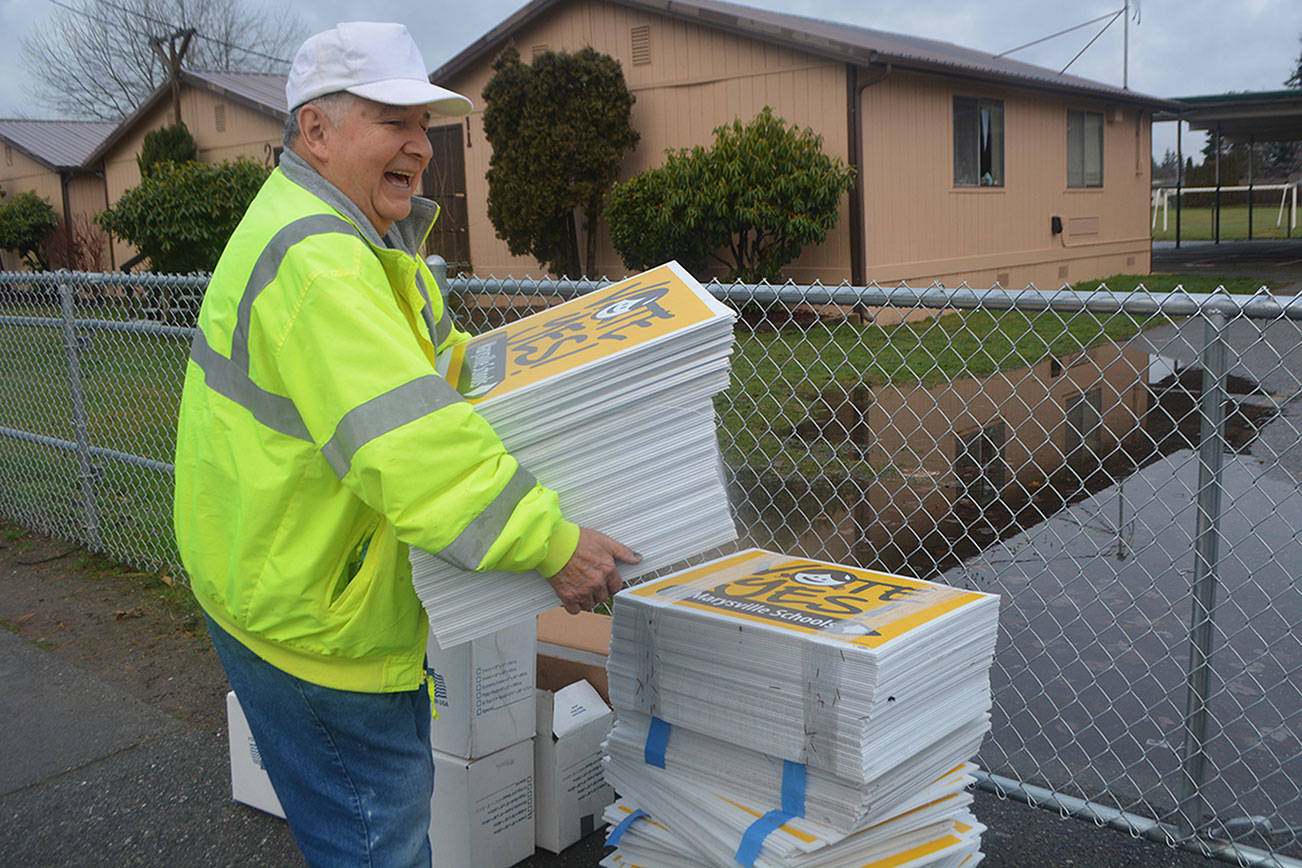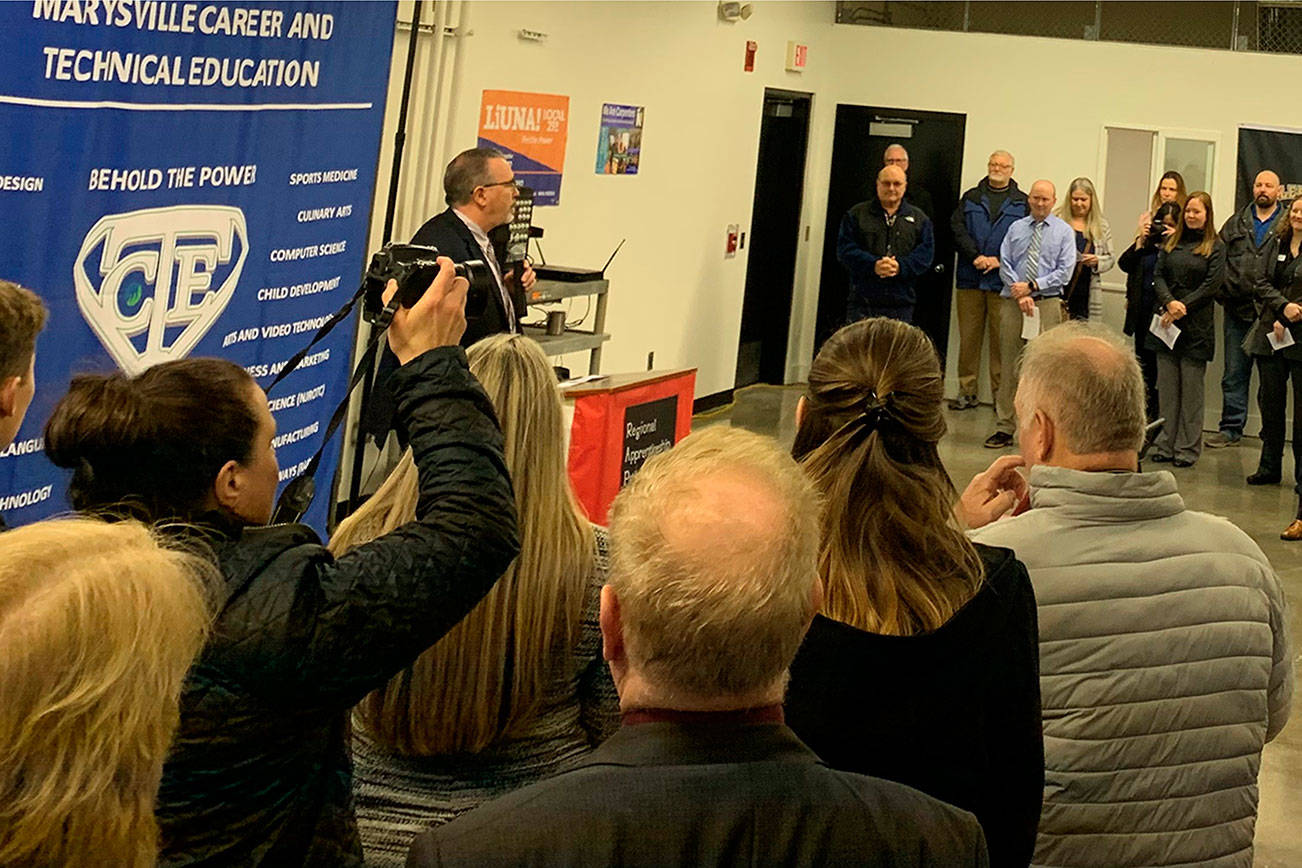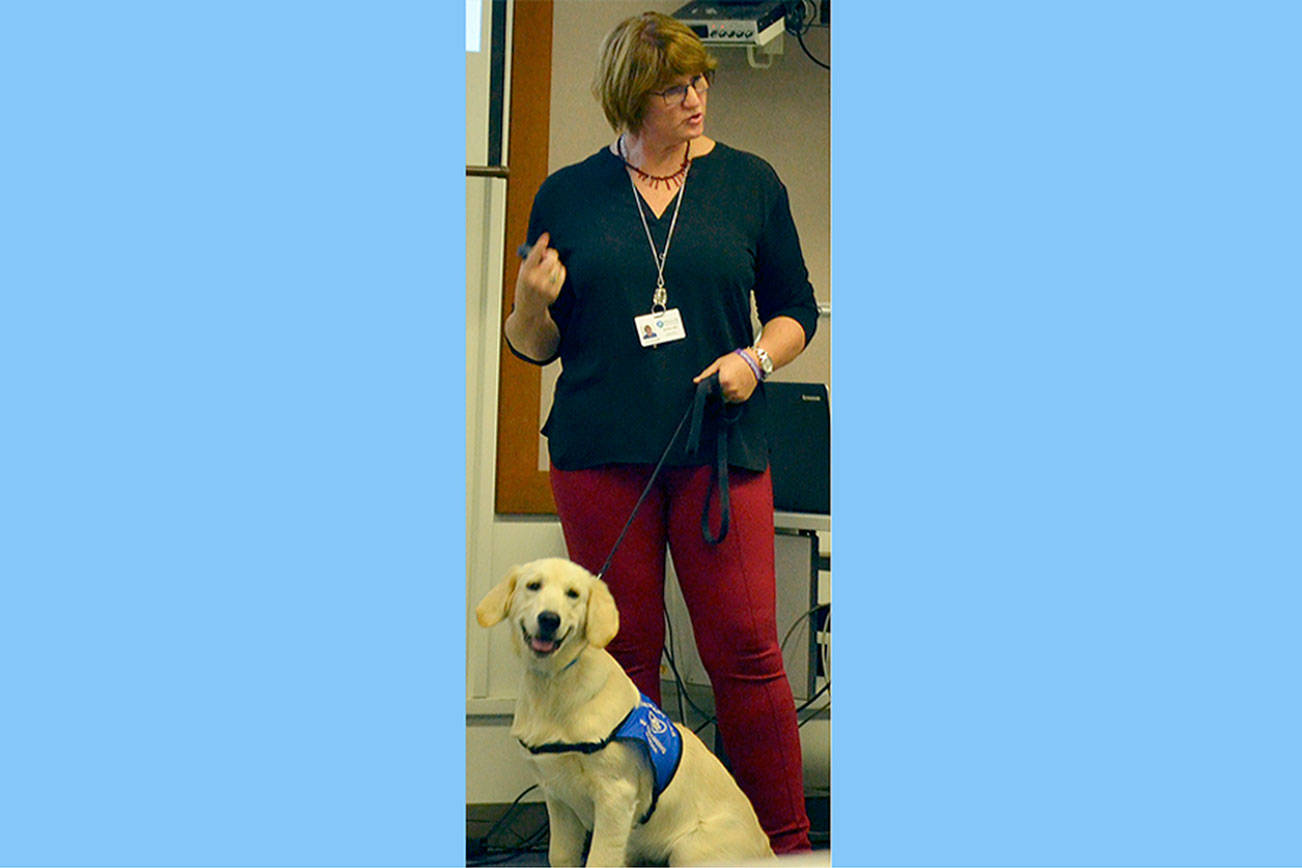MARYSVILLE – Marysville Getchell is looking at changes, but now all of the district’s secondary schools could be looking at changes, too.
Superintendent Becky Berg said that Wednesday after studying a consultant’s report and talking to the school board.
“I thought the issue was contained to Getchell, but every decision you make is related to a lot of other issues,” she said.
Consultants said MG could not become a traditional high school because it lacks needed facilities.
Berg won’t make her official announcement until June 19, but she is leaning toward studying all of the middle and high schools. She added that declining enrollment schools and grade configurations will be part of the process. For example, she said MG could become a school for eighth- and ninth-graders, while Marysville-Pilchuck could become 10-12. Berg said follow-up measures would be more comprehensive and inclusive. The consultants, in their report, didn’t include students, for instance. “I know some are frustrated with this in-between stage, but we need to take the time to get it right,” Berg said.
Supporters of Small Learning Communities at MG feared the consultant’s study would recommend getting rid of SLCs.
Students and their parents often spoke to the school board this year about that. They saw four principals reduced to one for the four academies, along with changing student leadership, professional learning communities for teachers and secretarial support. That suggested to them the Marysville School District wanted to make MG a traditional school.
The consultants didn’t endorse SLCs. They actually found plenty wrong with them. But they recommended that the district put a planning committee together that would study best practices of SLCs nationwide. MG should keep the good traits of the SLCs they have now, improve upon them, and start anew in 2018-19.
That’s the direction Berg seems to be leaning.
“The trend data show that some students benefit from this configuration, and others do not,” says the report done by the Washington Association of School Administrators in Olympia. Lead investigators Alan Burke and Doug Kurnutt of WASA said teachers and administrators also are split on SLCs.
The report says there are problems with SLCs, adding they have unintentionally created segregation and inequity. For example, the Academy of Construction and Engineering has a disproportionately higher number of students who are male (75 percent), in poverty, receiving special education services, receiving disciplinary referrals, earning D and F grades, not attending post-secondary schools, scoring poorly on state exams, and absent from school at a higher rate.
There is higher teacher turnover at ACE due to those factors.
Also, despite increasing crossover courses, students lack choices. The report emphasizes the need for more choices, especially in their junior and senior years. If more crossover courses were added that would further erode the SLC concept, the report says, adding the system has not produced higher levels of academic achievement school-wide.
The report notes some positive aspects of SLCs – such as close bonds and culture. But just as important for MG not becoming a traditional school is it lacks needed facilities, such as a full-size gym and lunchroom, along with a library and performing arts center.
“To flip a switch and make it comprehensive is not possible,” Burke said. “You can’t put a square peg in a round hole. There are some successful hybrids.”
Another major part of the report has to do with cost savings. The district expects 205 fewer students in MSD schools next year, which would mean a $1.4 million reduction in its budget.
They said having the SLC model probably costs the district $1 million more than a traditional school. The report says some of that money could be saved if the district would have boundaries like most school districts, rather than open enrollment. They suggested that alone could cut costs up to $400,000.
School Board Member Tom Albright said it looks like the district needs to look at the processes for all of its secondary schools.
“Look at all the things you do,” Burke agreed, adding many changes would affect the feeder middle schools.
Board President Pete Lundberg added, “It looks like we have work to do.”







